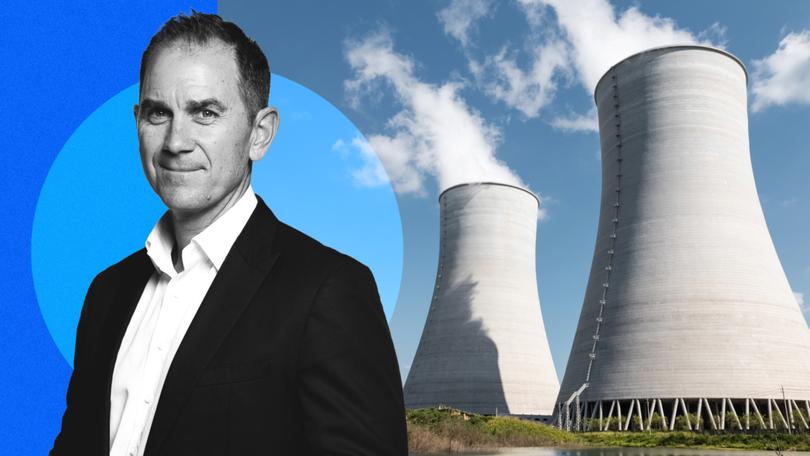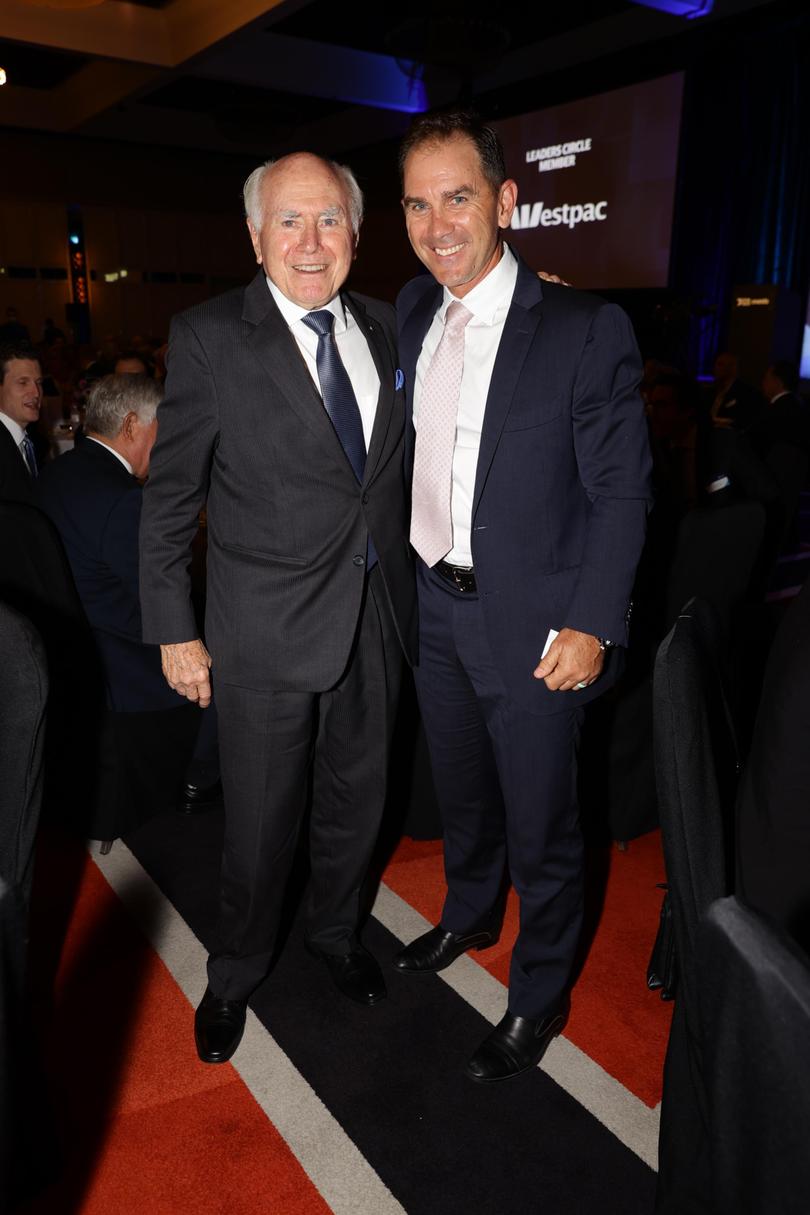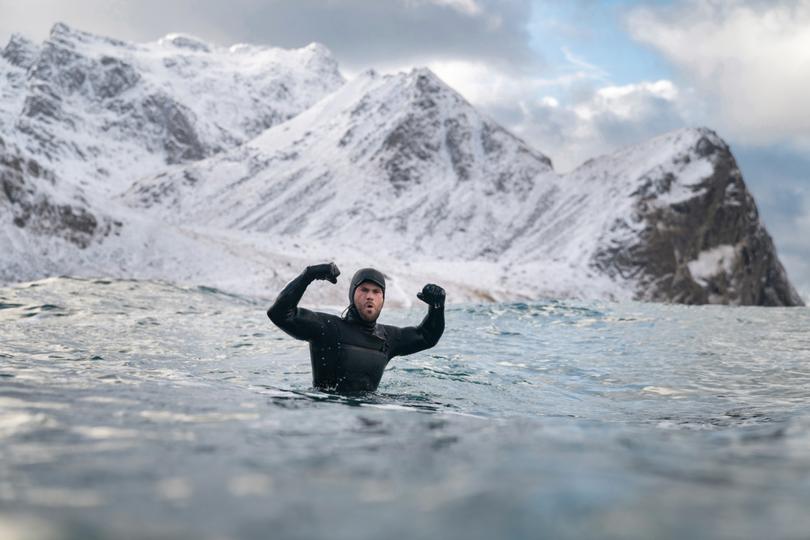JUSTIN LANGER: Peter Dutton’s nuclear policy will test us all and the day John Howard asked me to be a Liberal
The raging debate about our clean energy future is not black and white and why I will never be a politician.

Two days after retiring from Test cricket in 2007, my phone rang while I was eating breakfast in the family kitchen.
Still on a high from the Cinderella finish of beating England 5-0 and retiring on the same day as my great mates Shane Warne and Glenn McGrath, life was grand.
Admittedly my life was in limbo as one career had ended, and the next was still a mystery, but overall, I was on top of the world.
Sign up to The Nightly's newsletters.
Get the first look at the digital newspaper, curated daily stories and breaking headlines delivered to your inbox.
By continuing you agree to our Terms and Privacy Policy.Between mouthfuls of cereal, I was taken aback when the person on the end of the phone introduced herself as prime minister John Howard’s private secretary. She asked me if I would be available to meet with the PM later that afternoon.
On my way into the city, I chuckled to myself, as I had been listening to Mr Howard being interviewed on the radio that morning. In that interview he had spoken about a phone meeting he had with US President George W Bush, that very same morning.
Here I am standing in a lift on the way up to the 28th floor to meet our PM, and earlier in the day he was having serious discussions on geopolitical matters with the US President.
“What on earth does the PM want to talk to me about?”
I knew Mr Howard was a cricket tragic, but surely, he had more important things to do than spend time with me, talking all things cricket.
After an hour of laughter and friendly banter, the PM’s demeanour changed for just a few seconds, and a more serious expression came across his face. Shuffling in his seat and looking straight into my eyes, Mr Howard asked me if I had considered a career in politics and if I would consider getting involved in the Liberal Party.
For the second time in a day, I was taken aback, as politics wasn’t something I had thought seriously about.
I was flattered and humbled to be talking to the prime minister, but suddenly our meeting had become a lot more personal and serious. Agreeing to think about his proposal, I left with a warm handshake and let him get on with running the country.
My neighbour Barry Court — who bleeds blood blood as the son of Sir Charles and brother of Richard, former Western Australian premiers — has often joked to me about entering politics, but most of our chats have been more flippant than serious.
More serious has been my wife’s threats of divorce if I ever considered taking that path, not that I ever have despite my name seemingly coming up in other people’s conversations.
The thing I have always thought about politics is that regardless of how good a person you might be and how grand your intentions are, half the population is going to dislike you, simply because of the team you are representing.
Never talk about politics at a dinner party as they say.
Perhaps times are changing, with more fluid political views emerging, but traditionally, you are Labor or Liberal voter, just as you are a Docker or a West Coast supporter, a Pom or an Aussie when it comes to the Ashes, or NSW or a Queenslander in the State of Origin.
Such fierce debates don’t just reflect politics and sport, but religion, climate change, medicine, and health. There is often no middle ground — and for anyone who dares find that middle ground, or disagrees with your view, look out.
This all got me thinking when the topic of nuclear energy policy was raised by Opposition Leader Peter Dutton. More deeply, it made me reflect on what is true, and what isn’t, in this world.
Is something true because people bang the loudest drums, or is there actual truth and science behind the reality? Even then it seems to me that it depends on who you talk or listen to.
About 12 months ago, I was recommended a documentary called Nuclear Now. I had a very limited knowledge of nuclear energy, other than what I had heard, or seen, over my life time. I also had very little interest in the topic because I simply thought uranium was the earth’s poison and destroyer.

Then I watched Nuclear Now and I was fascinated by the history of nuclear energy and how it became a taboo subject, despite the science and potential benefits to the climate.
Truth be told, I still know very little about it and I can’t advocate either way, but I am fascinated in the cyclical and opposing nature of various subjects.
For example, in the last few weeks, I am seeing history repeating itself on this very subject.
John F. Kennedy spoke about nuclear energy in the 60’s, Peter Dutton speaks about it this month. In the JFK era, the politics and scaremongering became so strong, it has taken decades for populations to re-ignite the nuclear energy discussion.
Back then, it seems to me, that it just got too hard and was too much of a political hand grenade.
Mr Dutton and the Liberal Party open the discussion and the politics and debate re-emerge. Again, it will be fascinating to see if it becomes ‘oo hard as a political hand grenade, or whether mature discussion will arise as it has in other parts of the world.
More interesting, I ask myself the question, what is actually true and what isn’t?
Do I listen to the loudest voices or politicians working out who will vote for what, or do I educate myself and form my own view based on my values, knowledge and intuition?
Then I ask, do the loudest voices really know? Because history tells me I can hear people on either side of a debate — banging just as loud — with a completely contrary set of facts, figures, and opinions.
Another example. We live our lives responsibly playing our roles in ensuring our planet remains healthy. For some we are already too far gone. For most, we will do anything to protect the planet that serves us so well.
But recently I watched another documentary called Climate — The Story, sent to me by a friend.
In it, Nobel Peace recipients, physicists, astro-physicists, NASA lead scientists and professors completely debunked everything to do with global warming and climate change. After watching the show, you would be tempted to believe that climate change is a complete myth.

Now, regardless of my view, the issue I come back to is what is true and what isn’t true? And what do we believe? Life becomes confusing when people with views that contrast like black and white sell us their messages. What are we to believe?
This question goes to topics far less serious than nuclear energy or climate change.
Look at diet. We can read from those who say a carnivore diet is great for you and then hear from others that too much meat causes cancer. Others will swear by a vegetarian or vegan diet, while others will write it off as a hippie-led movement where those who eat a plant-based diet can’t survive without red meat. What’s true, what isn’t?
We all know water is the body’s medicine and yet I read this week, “when you drink too much water, you may experience water poisoning, intoxication, or a disruption of brain function. This happens when there’s too much water in the cells (including brain cells), causing them to swell”.
I have a great friend in England, an ex-Royal Marine and the fittest 60-year-old I have ever seen in my life. He once told me (with a smile on his face) that smoking cigarettes was good for you. His theory was that smoking makes your lungs work harder and therefore the harder you work, the stronger you get.
Now we all know this is a crock of rubbish, but who am I to argue with my marathon running, gym-frequenting mate, who happens to love smoking cigarettes and still looks healthier than anyone I know.
Last Sunday night I watched Australian actor Chris Hemsworth, another super healthy Aussie hero, in his docu-series Limitless.
In the second episode, he trained himself to swim in the freezing cold waters of Norwegian Arctic. As a part of the drama, he shared the benefits of cold water therapy and heat therapy, particularly saunas. I loved this because I am a daily advocate of both therapies.
The problem is I have also read that there is little to no scientific proof that these assist your health at all. Who do I believe? What is true and what is not?
Writing this reflection, I am watching the presidential debate and again I ask what is true, what isn’t? Who do we believe?
Julian Assange stepped back into Australia this week. I was personally happy to see him released, but what do I really know? Others believe he should have been locked up for life. Who’s right, who’s wrong? I guess it depends on who you choose to listen to.
Wars have been fought on contrasting beliefs and ideologies. Sadly, this is unlikely to change. I guess we have a choice as to whether we buy in, or not, or whether we just get on with our lives and let those with the loudest voices bang away at each other.
Who knows what is right or not?
